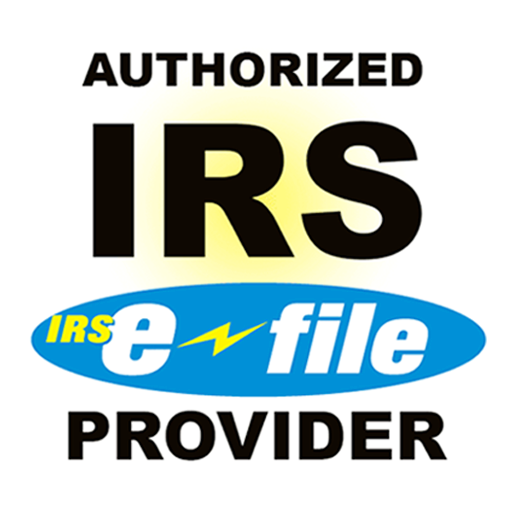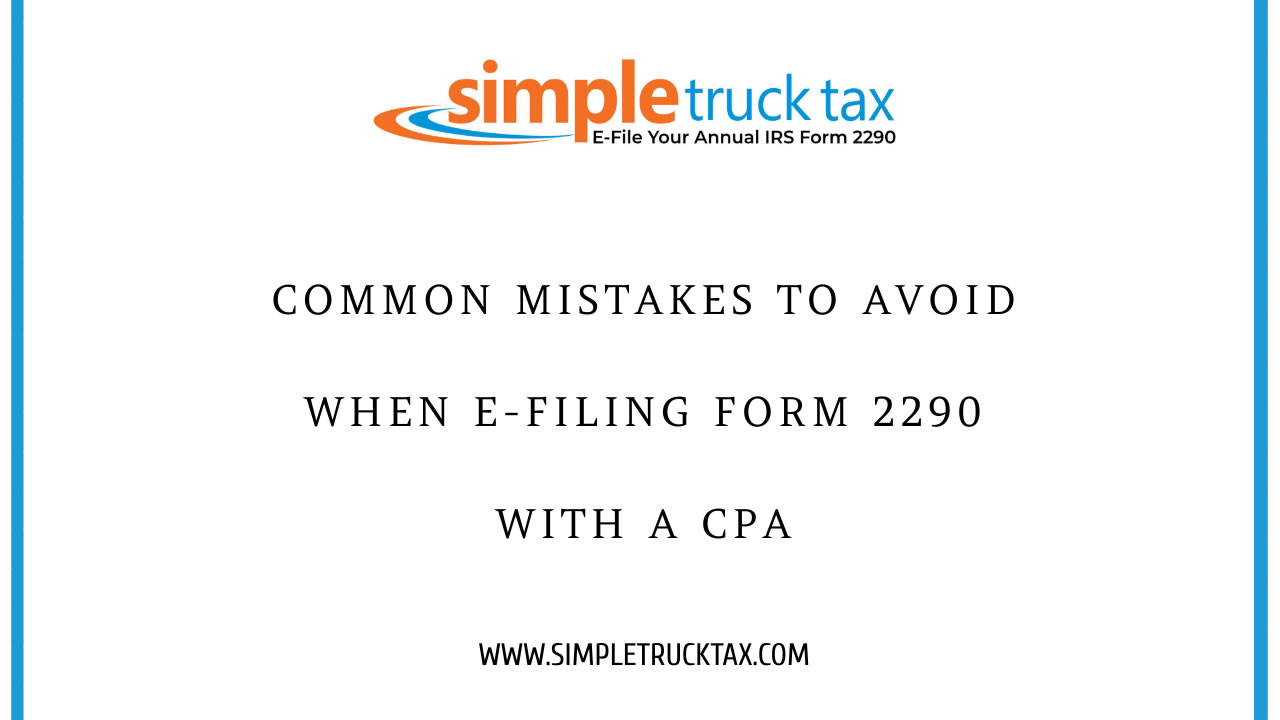03-26-2024
Common Mistakes to Avoid When E-Filing Form 2290 with a CPA
As a truck owner or operator, e-filing Form 2290 is a crucial step in ensuring compliance with IRS regulations and avoiding penalties. Many truck owners choose to work with a Certified Public Accountant (CPA) to help them navigate the complexities of this process. While a CPA can be a valuable resource in e-filing Form 2290, there are some common mistakes that truck owners should be aware of to ensure a smooth filing process. We will outline some of the most common mistakes to avoid when e-filing Form 2290 with a CPA.
1. Not Providing Accurate Information
One of the most common mistakes truck owners make when e-filing Form 2290 with a CPA is providing inaccurate information. This can lead to delays in processing and potentially result in fines or penalties. It is important to double-check all information provided to your CPA to ensure that it is accurate and up-to-date. This includes details such as the Vehicle Identification Number (VIN), gross vehicle weight, and taxable gross weight of your vehicles.
2. Missing the Filing Deadline
Another common mistake truck owners make when e-filing Form 2290 with a CPA is missing the filing deadline. The deadline for filing Form 2290 is typically August 31st each year for vehicles that are used on the road during the reporting period of July 1st to June 30th. Failing to file by the deadline can result in penalties and interest charges. It is important to work closely with your CPA to ensure that you meet the filing deadline and avoid any potential penalties.
3. Not Keeping Proper Records
Keeping proper records is essential when e-filing Form 2290 with a CPA. This includes maintaining accurate records of all your vehicles, including VINs, gross vehicle weights, and taxable gross weights. It is important to keep these records up-to-date throughout the year to ensure a smooth filing process. Your CPA can help you keep track of this information and provide guidance on how to maintain accurate records for future filings.
4. Failing to Make Payment
Finally, failing to make payment when e-filing Form 2290 with a CPA is a common mistake that truck owners make. It is important to ensure that you have the necessary funds available to pay the IRS when filing your Form 2290. Your CPA can help you calculate the amount owed and make sure that you submit payment on time to avoid penalties and interest charges.
E-filing Form 2290 with a CPA can be a complex process, but by avoiding these common mistakes, truck owners can ensure a smooth filing process and avoid potential penalties. Working closely with a CPA can help you navigate the complexities of Form 2290 and ensure compliance with IRS regulations. By providing accurate information, meeting the filing deadline, keeping proper records, and making timely payments, you can streamline the e-filing process and avoid unnecessary complications.
Note: For more information, visit IRS website


